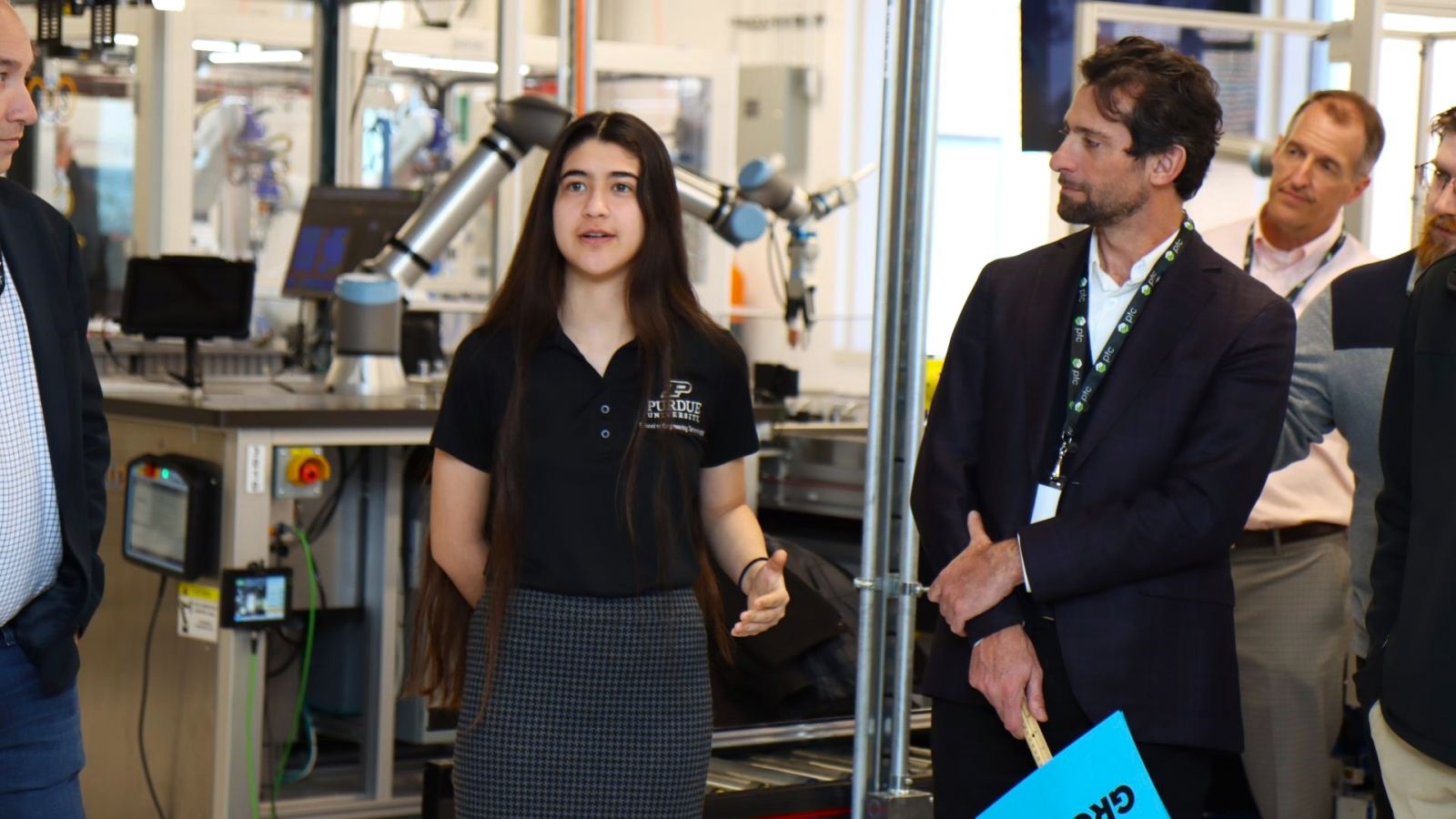
On March 20 and 21, PTC (an industrial software company and major sponsor of the School of Engineering Technology’s new smart learning ecosystem) came to Purdue to host their yearly event for employees and major PTC customers.
PTC employees had an opportunity to see how their software works in a real-world environment. Their customers—heavy-hitters in a variety of industries from automotive parts to medicine— had the chance to see current Polytechnic students (and potential future employees) in their element.
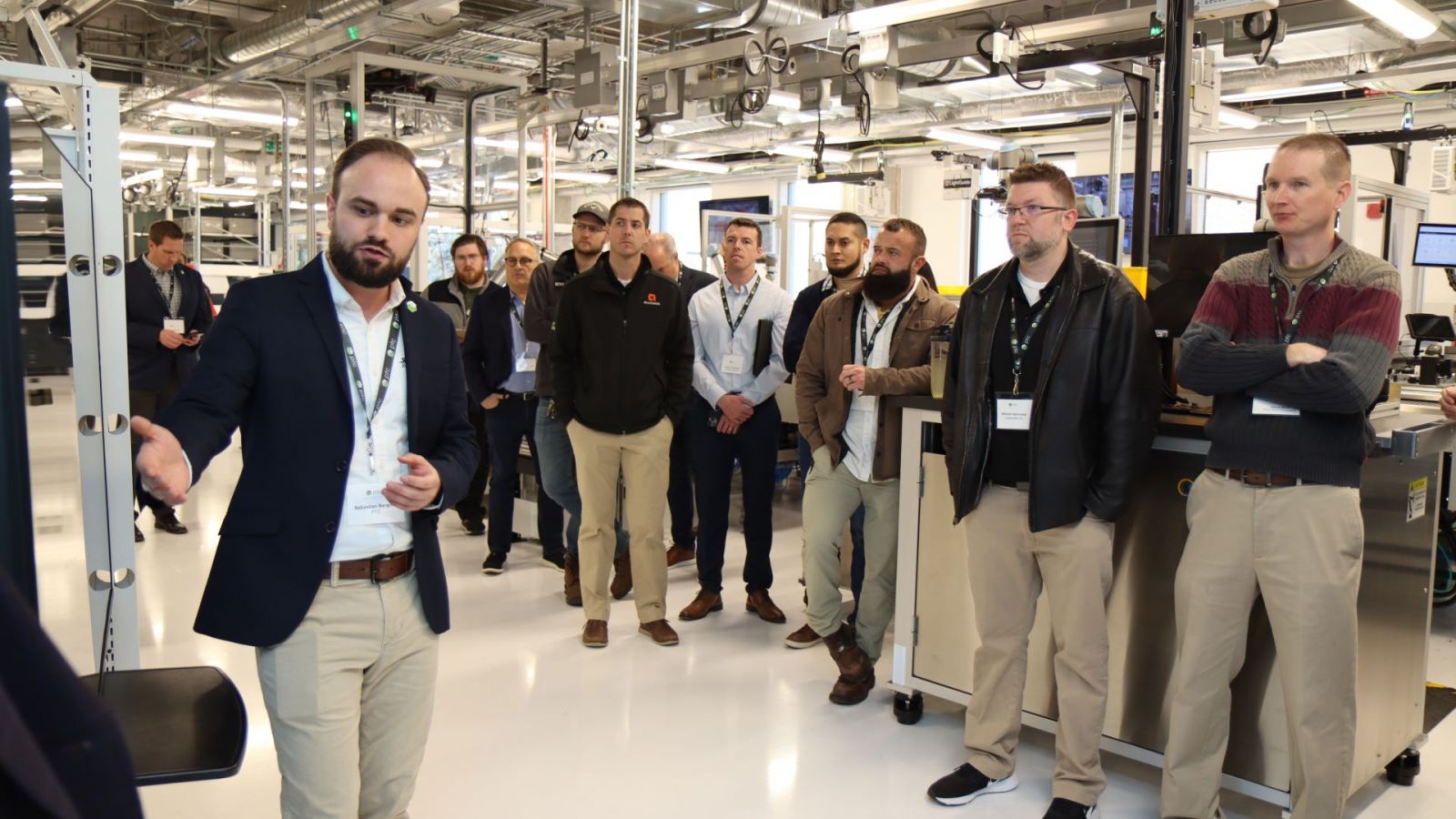
Students showcased how the new facilities will be used, and discussed how Purdue Polytechnic’s manufacturing ecosystem provides hands-on expertise in a variety of high-tech industries.
“The skateboard we’re currently making on the factory floor was a winner from a mechanical engineering capstone project,” said Dannalee Mata, a senior in audio engineering technology. “But there’s no reason that a student couldn’t come in here and catch imperfections that could lead to modifications down the line, or that could lead to an entirely new product.”
Mata, who will join Shure Incorporated as an audio electronics design engineer upon graduation, explained to several PTC customers that each component of the manufacturing system will be host to student lab work during the coming fall semester. This includes the Smart Learning Factory, the Continuous Process Lab (“which uses almost every sensor that [lab sponsor] Endress and Hauser makes,” Mata said), the Industrial Internet-of-Things Lab and the Smart Foundry.
Each of these four facilities are designed to feed into one another’s curriculum and processes. The goal in this case is to replicate aspects of real-world industries, which are reliant on second- and third-hand partnerships with other producers to make a final product. This interplay is achieved through a nearly total digitization of the manufacturing process—with major help from companies like PTC.
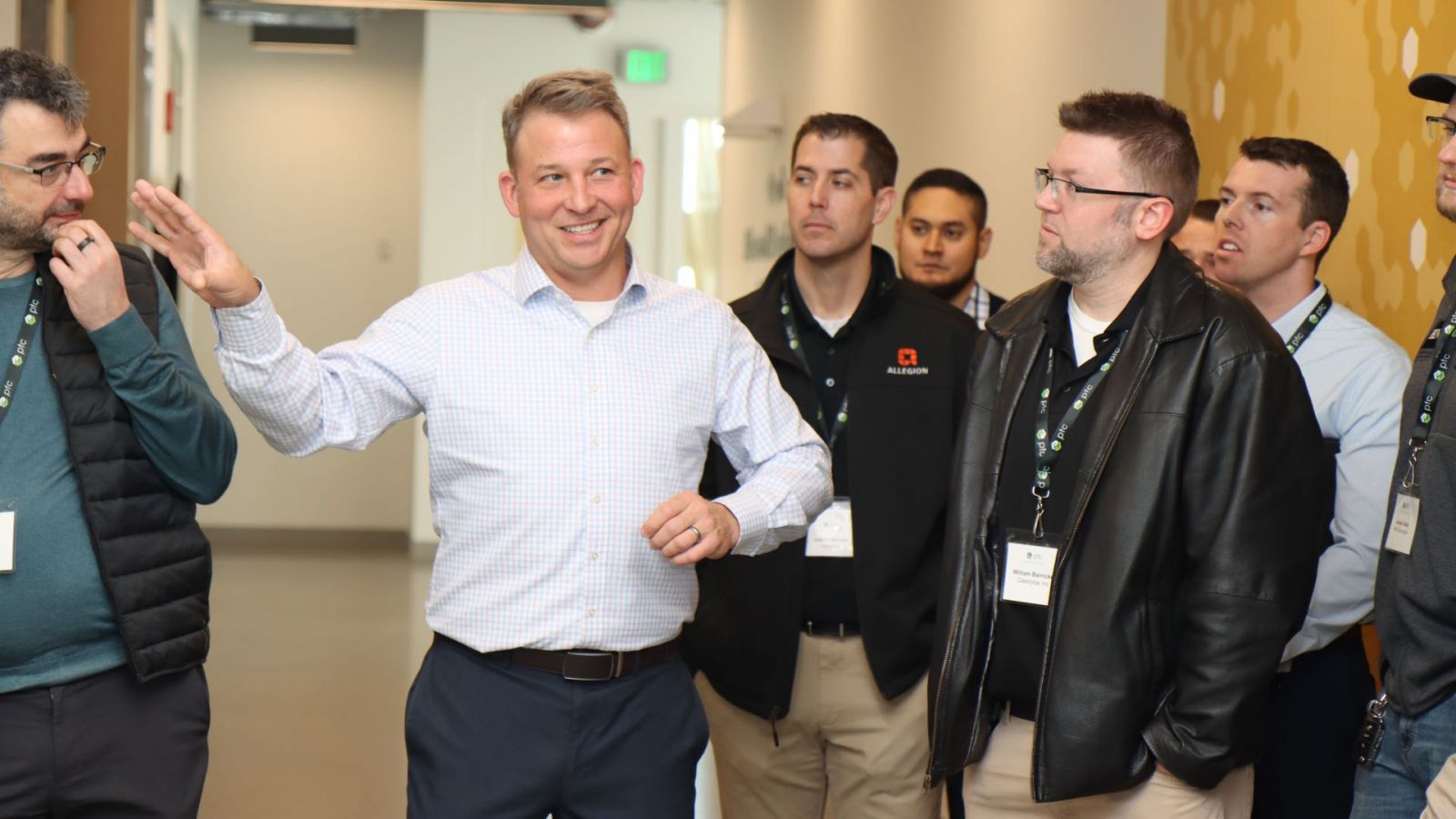
“We’ve been working with all our biggest partners, including PTC and places like Rockwell [Automation], to ensure that these new facilities function as real data engines for our students,” stated Grant Richards, an engineering technology professor at Purdue Polytechnic who has already implemented a great deal of new curriculum at undergraduate and graduate levels based out of the facilities.
“The goal is to generate tons of information for them to interpret and parse out, whether it’s with the assembly line, or the process lab that Endress and Hauser funded, or down on the lower level in Milan [Rakita’s] new foundry that Caterpillar helped us create.”
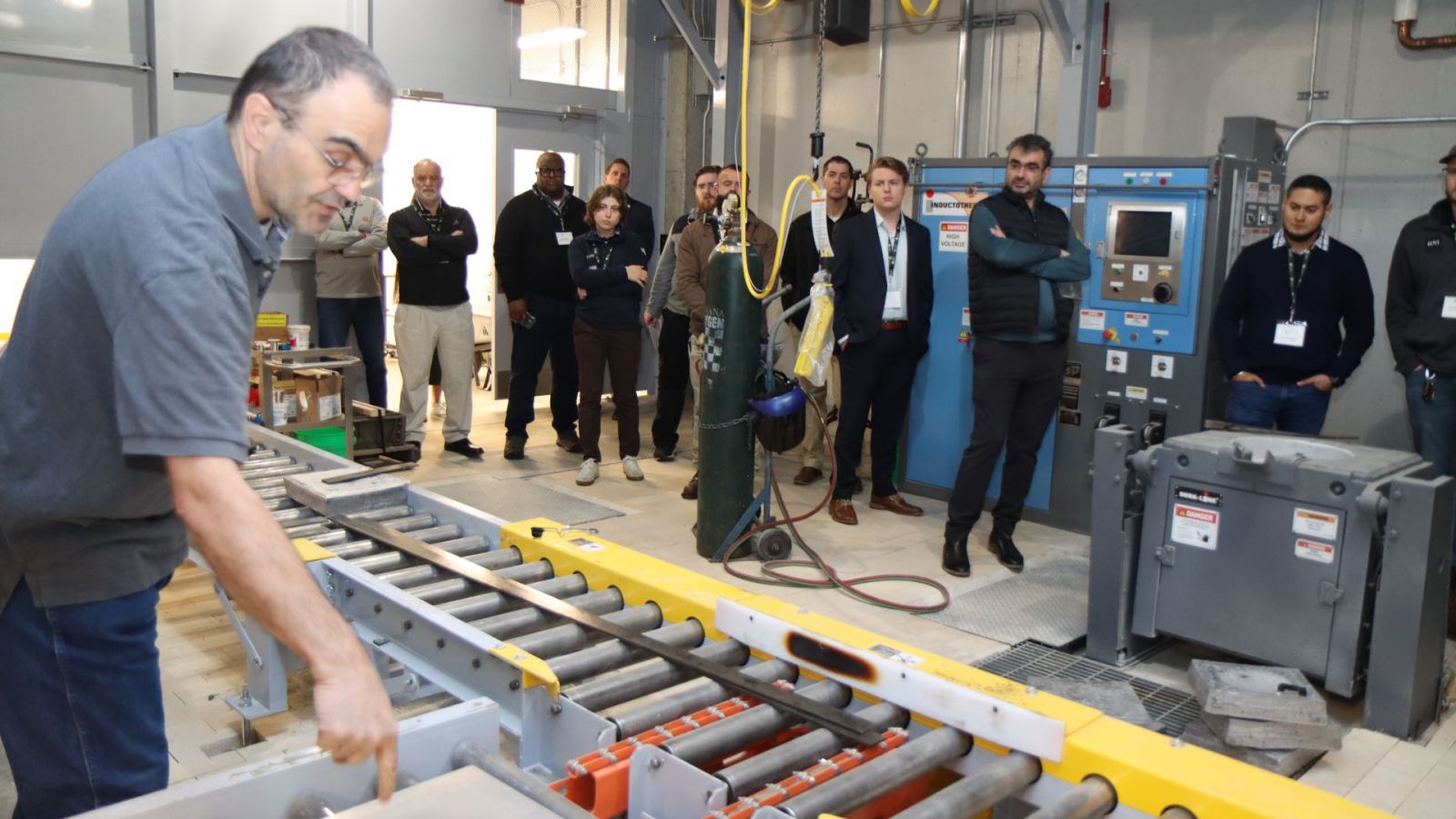
For PTC, an event of this kind would normally be run out of their headquarters in Boston, Massachusetts. The equipment they have on hand is enough both to train employees on PTC software, and to showcase its abilities for their new clients. The question that follows is: why move it to Purdue Polytechnic?
The change was precipitated by “shakeup” in PTC’s calendar, according to vice president of global product experience Serge Romano.
“But ultimately it’s good for us, and for our customers too, to see our software being used outside of the environment where we’d normally show it,” Romano explained. “Customers can see how it works in action at our headquarters of course, but seeing it actually in use within a third-party environment is encouraging. Purdue is teaching the future workforce how to use all these tools that different industries—our customers—need, and you’re managing to use it to great effect. It’s honestly really exciting for us to see.”
A large suite of PTC software has been incorporated into the Smart Learning Factory’s day-to-day operations as a consequence of their relationship with Purdue Polytechnic, with plans to extend additional products into the other three labs as needed. Current PTC products include:
- Kepware (3D modeling software)
- ThingWorx (a platform for connecting digital devices)
- Creo (a computer-aided design toolkit)
- Windchill (a product designed to manage all changes to a product over its lifecycle)
- Vuforia (an AI-enabled tool for quality-assurance checks)
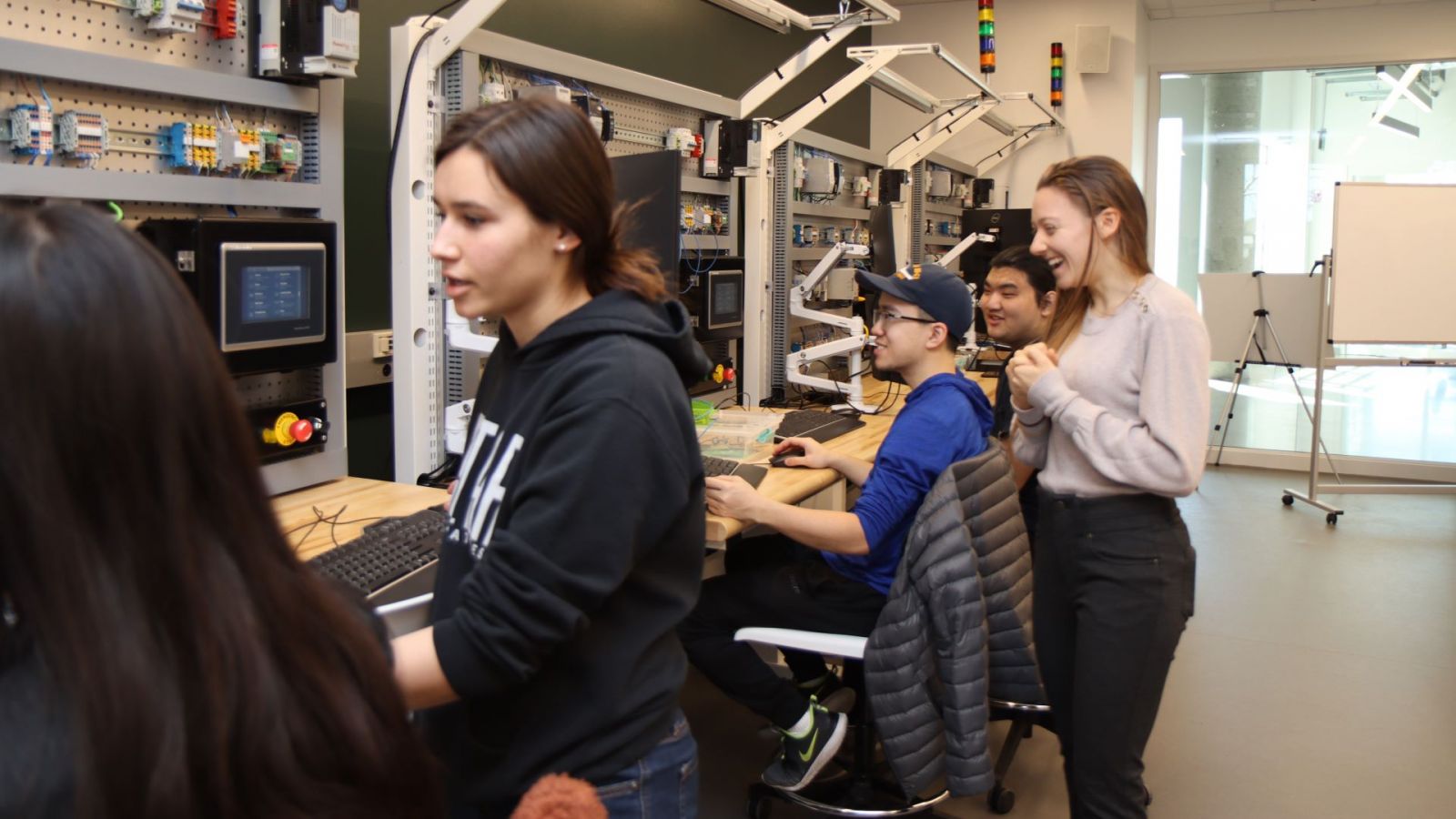
The Vuforia tool attracted special notice during the event; a PTC employee simply pointed an iPad camera at a newly-constructed skateboard, and the program immediately highlighted which parts had been installed correctly and incorrectly.
“We’re starting to look at a wide variety of enhancements like this,” said Tim Updike, engineering technology’s operations director. “In addition to things like Vuforia, we’re even considering an auditory component—what does a good skateboard truck actually sound like? John Deere uses these sorts of measurements all the time, and there’s no reason not to bring that same thing in here.”
PTC employees gave much feedback to Purdue Polytechnic faculty over the course of the event. Most seemed positive.
“Since we’ve been set up in this facility, we’ve seen kids walking past here and basically pressing their faces into the glass,” Philip Bard, a director with PTC, said to Richards. “Students genuinely want to know, ‘how do I get in here? What’s happening in here?’”
Additional information
- Engineering technology hosts a day of smart manufacturing at Purdue (newsroom)
- Purdue Polytechnic to dedicate nation’s largest smart manufacturing ecosystem for engineering technology (newsroom)
- Trimble Technology Lab is “heritage and future” for Purdue Polytechnic, university's construction programs (newsroom)
